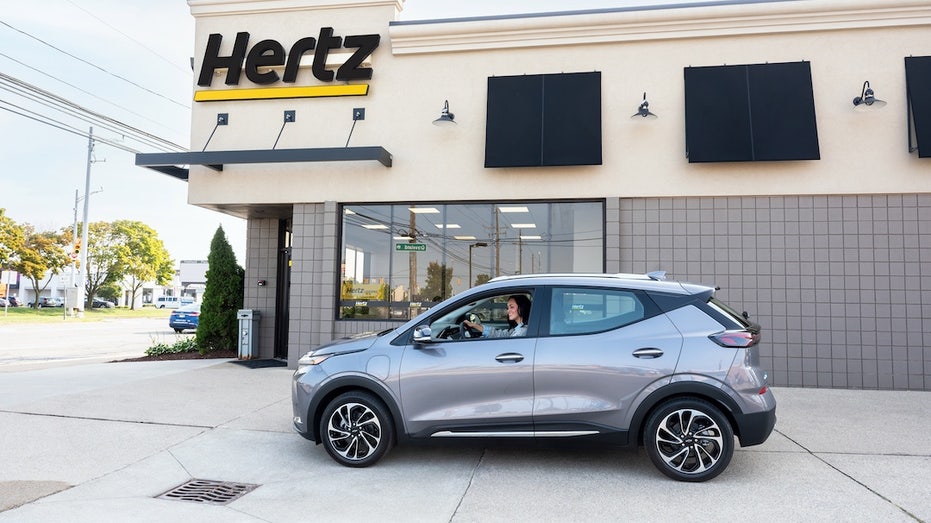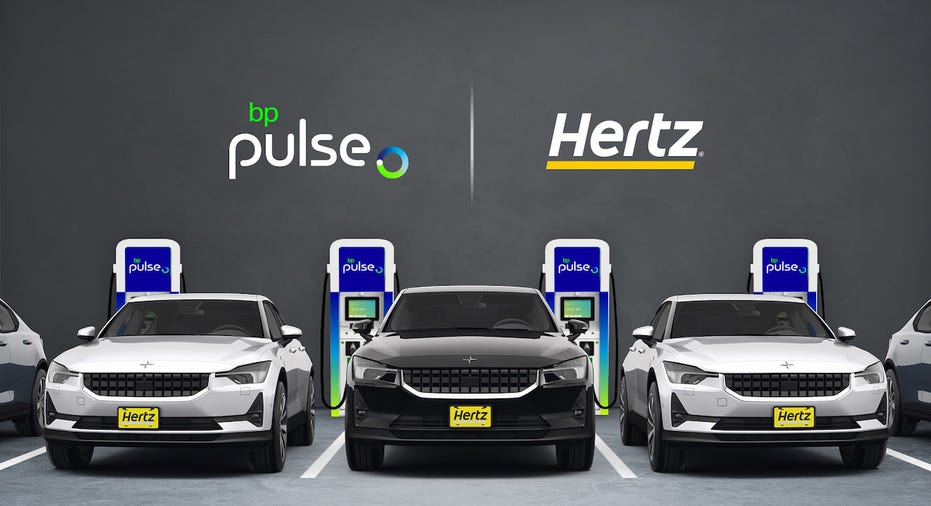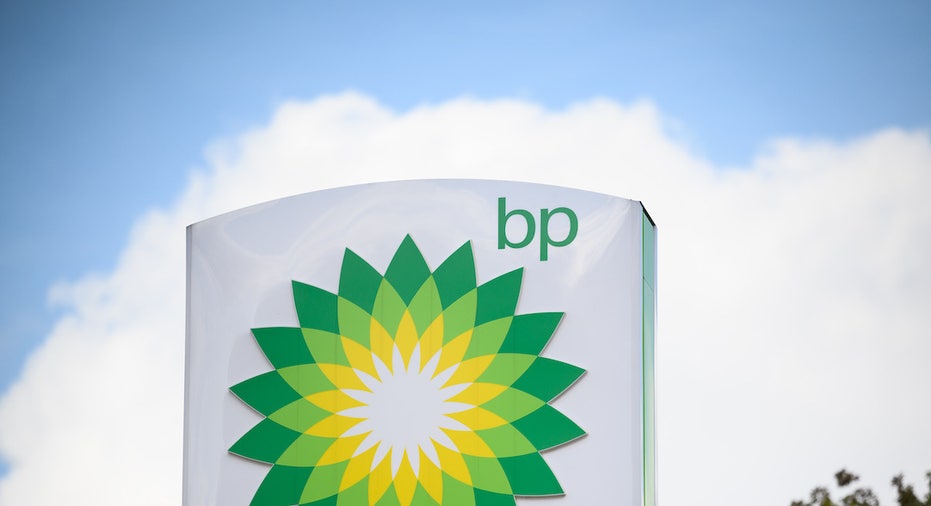Hertz, BP teaming up to build electric vehicle charging network
The rental car giant has ordered thousands of electric vehicles from Tesla, Polestar, General Motors
Qualcomm collaborates with Mercedes-Benz to accelerate automotive chip ambitions
Qualcomm CEO Cristiano Amon announces on 'The Claman Countdown' a deal with Mercedes-Benz to power vehicles with Snapdragon digital chassis solutions.
Shares of Hertz jumped Tuesday on news the second-largest U.S. rental car company is teaming up with oil and natural producer BP to "substantially expand" its electric vehicle charging infrastructure in North America.
| Ticker | Security | Last | Change | Change % |
|---|---|---|---|---|
| HTZ | HERTZ GLOBAL | 5.29 | +0.35 | +7.09% |
| BP | BP PLC | 39.01 | +0.84 | +2.20% |
The companies signed a memorandum of understanding for an undisclosed number of EV charging stations that will be managed by the oil giant's Omega software. The fast-charging hubs will be available to Hertz customers, including taxi and ride-sharing drivers, as well as the general public.
FORD ASKS FOR NEW TRIAL AFTER $1.7 BILLION JURY VERDICT IN TRUCK ROLLOVER LAWSUIT
Hertz, which has set a goal to electrify one quarter of its rental fleet by the end of 2024, currently offers thousands of EVs at 500 locations across 38 states.

Woman drives a Gray Ghost Metallic 2023 Chevrolet Bolt EUV in front of a Hertz rental location in Michigan. (Photo courtesy of General Motors/Hertz) (General Motors/Hertz)
| Ticker | Security | Last | Change | Change % |
|---|---|---|---|---|
| GM | GENERAL MOTORS CO. | 84.24 | +0.94 | +1.13% |
| TSLA | TESLA INC. | 411.11 | +13.90 | +3.50% |
| PSNYW | POLESTAR AUTOMOTIVE | 2.97 | -0.02 | -0.67% |
The deal with BP comes a week after Hertz agreed to buy up to 175,000 electric vehicles from General Motors through 2027 to expand its fleet. Additionally, Hertz ordered 100,000 Teslas last year and 65,000 Polestar vehicles in April.
GET FOX BUSINESS ON THE GO BY CLICKING HERE
BP Pulse was established following the acquisition of fleet charging an energy management company Amply Power in 2021. The unit has already partnered with Hertz to install charging stations at 25 of its rental locations in 2022.
Hertz is teaming up with BP to develop a national network of electric vehicle charging stations in the United States powered by the oil giant's Pulse division. (Photo courtesy of Hertz/BP)
BP plans to expand its global network of high-speed charging for cars, light commercial vehicles and trucks with a global target of more than 100,000 chargers by 2030, with about 90% of those being rapid or ultra-fast chargers.























